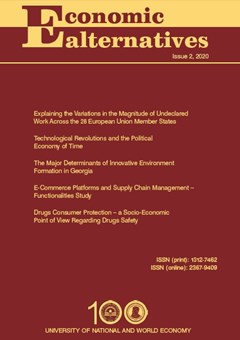Creative Accounting – Definition, Types, Purposes and Impact on United Nations’ Sustainable Development Goals
Author: Ivan Gudev
Abstract
This article aims to define what is the essence of the so called "creative accounting", its purposes, types of creative accounting techniques and methods and how it relates to and impacts the United Nations’ sustainable development goals (SDGs). Various definitions and characteristics are given to this phenomenon – different authors use variety of terms such as earnings management, income smoothing, creative accounting practices, aggressive accounting, cook the books, accounts manipulation, or window dressing. Irrespectively how it is called, it relates to one and the same thing – presentation of companies’ financial position, cash accounts, equity and earnings in a way that pursues specific personal objective. In most cases, this deliberate presentation is not fraudulent and does not violates the law or the relevant accounting standards, but breaks down the confidence in accounting profession and contradicts to the ethical principles of professional accountants. Specific attention is given to the relationship between accounting and sustainability and particularly, how creative accounting practices impact the achievement of United Nations’ sustainable development goals. Literature analysis and deliberations are presented on how creative accounting prevents the fair allocation of resources in economy and the damage it causes to society. This study does not pretend to explore in detail either the creative accounting, or the SDGs, but its essential objective is to create a basic overview on both phenomena and find intersection points between them. A lot of studies explore the relationship between accounting as a general term and UN’ Sustainable Development Goals, but very few are focused specifically on the link between creative accounting and it’s influence on the achievement of those goals.

